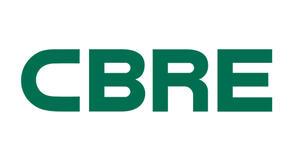ESG Training Course for Real Estate Professionals
After upskilling more than 1000 course participants from 130+ organisations since its launch in May 2021, we want to inform you that the BBP has decided to pause delivery of the ESG Training Course for Real Estate Professionals (delivered by Hillbreak) from the end of the currently scheduled sessions in Q3/Q4 2024.
Over more than three years, the course has made a significant and measurable impact on the sector’s understanding and integration of ESG principles into investment decision-making. Following careful consideration and in agreement with the BBP Board, the BBP would like to turn attention to how it can use this experience to ‘upscale’ impact further in line with its objective to ‘improve professional understanding’ and ambitious 2030 Vision. Further details of the BBP’s upskilling programme will follow in due course.


Upskilling the Industry – Training to integrate ESG into property investment management.
Driven by global trends ranging from biodiversity collapse and the climate emergency to widening social injustice and technology enabled lifestyles, Environmental, Social & Governance (ESG) factors are now a locked-in feature of the real estate investment market. There is a clear imperative for real estate professionals to address material ESG risks and opportunities across the investment lifecycle, with many investors, regulators and other stakeholders now defining it as a fundamental requirement.
There is, however, a significant skills gap within the industry, and so in response to demand from our members, in 2021 the BBP launched a training programme specifically for real estate professionals, focused on integrating ESG into the property investment management process. This programme is tailored to individuals working in fund management and investment advisory institutions, Real Estate Investment Trusts and private property companies; as well as to advisory professionals in capital markets, investment advisory, valuation, leasing, and transaction-based roles.
Built by the Industry, for the Industry
This program was originally structured into two distinct 'Pathways', catering to participants from Asset Owner & Manager Organisations and those from Advisory or Consultancy firms.
Upon a redevelopment of the programme in 2022, in the spirit of promoting radical collaboration for the advancement of better sustainability outcomes, the course has now combined the two pathways to bring together individuals from both AOM and ADV organisations. By merging the Pathways, our goal is to elevate the crucial peer-to-peer learning component of the programme and harness the diverse experiences and perspectives of each participant through in-depth discussions and tailored group exercises.
The programme is particularly relevant to individuals in the following positions:
- Fund managers
- Portfolio and asset managers
- Investment/ transaction managers
- Development managers
- Investor Relations specialists
- Product development and distribution specialists, especially those looking to incorporate ESG characteristics into new or existing funds
- Real estate finance professionals and analysts
- Equity raising
- Debt sourcing and structuring
- Investment brokerage / consultancy
- Agency (i.e. buying, selling and leasing assets and portfolios)
- Valuation
- Capital markets research
Programme Structure
The training involves 8-10 hours of interactive teaching over two half-days, with the option to participate either in-person or virtually. This is supported by preparatory and post-course learning, including assessment, delivered via a dedicated online platform.
Learning materials and formats include classroom-style learning, interview-based video and podcast content, together with written resources and case studies. There are bespoke materials specific to role types, ensuring maximum relevance to the individual and their organisations. For the in-person course delivery, two hours of compulsory foundational learning are delivered virtually 1-2 weeks ahead of the one-day training course.
The course emphasises and encourages active participation and peer-to-peer learning, both in-person and virtually.
The training course is delivered by Hillbreak, a specialist ESG training and advisory firm. Both parties bring together unique expertise to ensure content meets the needs of the industry.
For further information about the course, please view the course outline and learning outcomes below or click the registration link above.
The training course is delivered by Hillbreak, a specialist ESG training and advisory firm. Both parties bring together unique expertise to ensure content meets the needs of the industry.
For further information about the course, please view the course outline below or click the registration link above.
Course Outline
Module 1: Context and Strategic Considerations
- ESG drivers and market trends: understanding how investment and operating contexts are changing in response to environmental and societal imperatives.
- New risks and opportunities: defining key ESG topics, such as Net Zero and social impact, and their application to different property types and asset strategies.
- Financial and non-financial returns: unpacking the relationship between ESG, property value and investment performance.
- Measurement and transparency: certification, benchmarking and reporting frameworks applicable at the asset, portfolio and corporate level.
Module 2: Practical Implementation
- Prioritising ESG interventions throughout the property investment lifecycle, including integration into asset business plans and the growing role of sustainable finance.
- Ways of engaging with other stakeholders, such as occupiers and operating partners, to secure the delivery of ESG interventions and outcomes.
- Establishing roles and responsibilities, ensuring accountability and incentivising action across the value chain.
- Market leadership: examples of best practice and innovation from around the sector.
Learning Outcomes
Learning Outcomes
- Have deeper knowledge and understanding of the key ESG factors pertinent to commercial RE investment.
- Have greater awareness of salient market and regulatory trends and the implications of these for different stakeholders
- Be able to identify the ESG factors that are material to a range of property types and strategies and understand the interconnectedness of these factors
- Be able to identify and assess ESG-related risks and opportunities in the short and longer-term and understand the impact these have on property value and valuation
- Know what needs to be done to address ESG risks and opportunities across the investment lifecycle, including with respect to direct and indirect investment, lending and development
- Have an appreciation for the impacts of ESG on leasing as well as occupier considerations
- Be confident in driving forward practical interventions to address the ESG attributes of AUM
- Understand that ESG should be integrated into a range of different roles and responsibilities
- Know how to measure, set targets for, track and report on ESG factors, including in relation to risk profile, environmental performance and social impact.
- Understand the scope and limitations of the principal ESG measurement, benchmarking and certification frameworks, and the role these can play in improving transparency.
Founders and Supporters
This training programme has been made possible by funding and input from the following members who also help to oversee the ongoing development of the course.
Additional content and redevelopment of the course has been made possible by funding and input from the following members of the Property Advisors Forum.
























